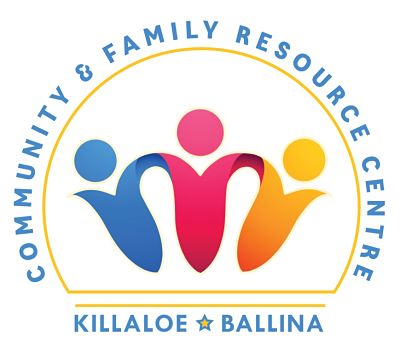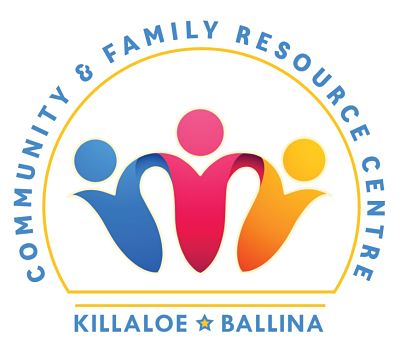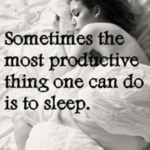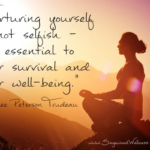Wellness
The Covid-19 outbreak is an extremely difficult situation; many of us are struggling to maintain our wellbeing as we try and manage our concerns, thoughts and feelings during this challenging, uncertain time.
There have been many changes to life at home, at work and to our social interactions as we distance ourselves physically in order to protect each other. Everyone is finding this situation difficult and everyone reacts differently to the challenges of social distancing and staying at home. We may be feeling isolated, anxious, lonely or worried - about our health, about those close to us or about our finances. It is important to remember it’s OK to feel this way.
Staying healthy and taking care of mind and body is really important while staying at home and coping with mixed and changing emotions. The following offers some guidance on things you can do now to help you keep on top of your mental wellbeing and manage how you are feeling.
Hope
In order to stay well we need to believe that our circumstances will get better. Hope allows us to believe there is a future. At this time it may be a future where we feel more safe, a future where we can go out and meet our friends and neighbours, go back to work, engage in activities and go back to a more usual routine. Hope helps us to motivate ourselves towards our dreams and ambitions and allows us to feel positive energy.
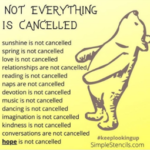 Even during these difficult weeks of the COVID-19 pandemic, when there has been such uncertainty, fear and great sadness. At this time when we are all being challenged, we have seen so many acts of kindness and generosity. Communities have been reaching out to help others; their family, friends, and neighbours and strangers. All these acts of kindness give us hope, even when we may feel scared or overwhelmed. Kindness also breeds kindness, it inspires us and makes us feel part of a wider, connected and caring community.
Even during these difficult weeks of the COVID-19 pandemic, when there has been such uncertainty, fear and great sadness. At this time when we are all being challenged, we have seen so many acts of kindness and generosity. Communities have been reaching out to help others; their family, friends, and neighbours and strangers. All these acts of kindness give us hope, even when we may feel scared or overwhelmed. Kindness also breeds kindness, it inspires us and makes us feel part of a wider, connected and caring community.
It is really important to remember our communities are doing a great job. We are showing great spirit and resilience during this time of social isolation. From every individual and family ‘staying home’ managing their own circumstances, to our Covid-19 volunteer groups and organisations co-ordinating meaningful responses; to our essential frontline services and healthcare providers and to all the genuine efforts being made to reach-out, connect and support people via social media. This spirit unifies us and this spirit gives us hope.
Whilst we know it will take time to a return to our usual lives, we have hope. Hope that this pandemic will be controlled and that our social distancing and stay-home actions will continue to help reduce infection and save lives.

 Sometimes, when we are feeling really bad, we have to search for hope or we have to let others hold our hope until we feel better. So if you are feeling hopeless and distressed, you might consider talking to a trusted friend or family member, someone who you have found to be supportive and who will listen to your concerns and someone who you can touch base with over the coming weeks.
Sometimes, when we are feeling really bad, we have to search for hope or we have to let others hold our hope until we feel better. So if you are feeling hopeless and distressed, you might consider talking to a trusted friend or family member, someone who you have found to be supportive and who will listen to your concerns and someone who you can touch base with over the coming weeks.
You might also seek support by talking to your GP or by contacting one of the services listed here. Alternatively, if you need to talk please contact us at Killaloe/Ballina Family Resource Centre and someone will get back to you as soon as possible. Tel: 085 0570609 or email us at info@kbfrc.ie.
Things you can do to stay well
Staying healthy – Look after your body
Our physical health has a big impact on how we feel.
During challenging times, it can be easy to fall into unhealthy patterns of behaviour that can make us feel worse. As most of us have been ‘staying home’ we may have not been getting the exercise we need or eating as healthily as we could and for many of us our sleep patterns may have been disrupted. The following are important to incorporate into your daily routine.
Think about the FAB-4
1. Exercise -
 It is really important for our health to get regular exercise. You can leave your house, alone or with members of your household, for exercise each day as long as you keep a safe 2-metre distance from others. Think about what you feel able to do, and what you would enjoy. It could be a walk - even around the block to start with, or a run, a bike-ride or you might have exercise equipment at home you can use or an on-line workout that you can follow. Gardening and housework count too! There are lots of on-line resources and the following links may be a starting point.
It is really important for our health to get regular exercise. You can leave your house, alone or with members of your household, for exercise each day as long as you keep a safe 2-metre distance from others. Think about what you feel able to do, and what you would enjoy. It could be a walk - even around the block to start with, or a run, a bike-ride or you might have exercise equipment at home you can use or an on-line workout that you can follow. Gardening and housework count too! There are lots of on-line resources and the following links may be a starting point.
2. Daylight -
 One of the benefits of getting exercise outside is that we are exposed to daylight/sunlight. Whilst we have to take care in the sun, moderate sunlight exposure can help improve our mood and focus by boosting the serotonin levels in the body. Also known as the 'happiness hormone', it makes us feel calm and alert. The sun's UV rays also help our bodies make vitamin D, which is important for our bones, blood cells, and immune system. Spending time in green, natural space can benefit both mental and physical wellbeing. It can improve mood, reduce feelings of stress or anger, and make us feel more relaxed.
One of the benefits of getting exercise outside is that we are exposed to daylight/sunlight. Whilst we have to take care in the sun, moderate sunlight exposure can help improve our mood and focus by boosting the serotonin levels in the body. Also known as the 'happiness hormone', it makes us feel calm and alert. The sun's UV rays also help our bodies make vitamin D, which is important for our bones, blood cells, and immune system. Spending time in green, natural space can benefit both mental and physical wellbeing. It can improve mood, reduce feelings of stress or anger, and make us feel more relaxed.
3. Nutrition & Diet -
 Try to eat healthy, well-balanced meals, drink enough water and exercise regularly. Eating well is one of the most important things we can do for our overall wellness, for our body, mind and long-term health. A good diet provides us with the energy we need to keep active throughout the day and supplies the nutrients we need to stay strong and healthy. As well as boosting our mood a healthy diet can help prevent serious illnesses including heart disease, stroke, a range of cancers, diabetes, hypertension and high cholesterol. (Avoid smoking or drugs, and try not to drink too much alcohol).
Try to eat healthy, well-balanced meals, drink enough water and exercise regularly. Eating well is one of the most important things we can do for our overall wellness, for our body, mind and long-term health. A good diet provides us with the energy we need to keep active throughout the day and supplies the nutrients we need to stay strong and healthy. As well as boosting our mood a healthy diet can help prevent serious illnesses including heart disease, stroke, a range of cancers, diabetes, hypertension and high cholesterol. (Avoid smoking or drugs, and try not to drink too much alcohol).
4. Sleep -
 We have to look after our sleep as good-quality sleep makes a big difference to how we feel.
We have to look after our sleep as good-quality sleep makes a big difference to how we feel.
We all have evenings when we find it hard to fall asleep or we wake up in the night and can’t get back to sleep. How we sleep and how much sleep we need is different for all of us and changes as we get older but generally the ideal recommended amount is around 8 hour). But for all of us, lack of sleep or broken sleep can cause extreme tiredness, making us irritable and less able to function and making usually manageable tasks harder. Sleep problems are common especially when we are stressed and anxious, so it is very important to try and maintain a regular sleeping pattern and good sleep practices.
Staying Healthy – Look after your wellness
In these exceptionally difficult times many of us are experiencing increased levels of anxiety and may be feeling overwhelmed due to Covid-19 and the impact the spread of the disease is having at home and across the world.
Life for many of us during Covid-19 means, for a while at least, that our normal routines have changed and we may be disconnected from activities and social interactions that helped us maintain purpose and wellbeing. We are all having to practice patience, and become more resilient and take life day by day. We have to accept that some days are better than others.
Wellness – What is it?
Being healthy is not just about being free of disease, it is about being in a state of good physical, mental, spiritual and social well-being.
We can increase well-being by making simple, healthy choices on a daily basis. Practicing these personal choices, in a conscious way, helps us maintain better physical and mental health, so that instead of just surviving we thrive. Focussing on our wellness helps us build resilience and enables us to reach for our potential amidst life’s challenges.
In order to stay well we have to know
- how we feel when we are well and
- what things we do that help us stay well
How do you feel when you are well?
Take some time to think about and list what you are like when you feel well.
For example, when we are well we are more likely to feel content, communicate better, we are optimistic and may feel more confident and more able to reach for and achieve our goals. We are probably more sociable, enjoy activities, have more energy for life and eat and sleep well.
When we don’t feel well we may feel anxious and unhappy, withdrawn, uncommunicative, low in energy and find it hard to complete tasks, even showering or preparing food can be challenging as we feel overwhelmed by life.
What things do you do that help you stay well?
Often we do things regularly, without being aware that they help us stay well.
These are things that we enjoy, things that lift our spirits…. they are our ‘wellness tools’.
They may be things that give us time to relax, or things that stimulate us like exercise or learning something new. It could be walking in nature - with or without the dog! soaking in the bath, reading a book, meeting with friends or singing in a choir. It could be listening to music, ironing, gardening, painting, upcycling, meditating or simply finding time to watch your favourite tv series or have a quiet cuppa and re-charge.
What makes us feel well is different for all of us, but our ‘wellness tools’ are essential things that we need to incorporate into our lives in order to stay well.
It is also important for us to maintain our wellness by keeping up with necessary medication, or health care appointments for our physical or mental health needs.
List your Wellness Tools
Try making a list of all the things you enjoy doing, the activities that help you relax and feel well.
These things are personal to you, they can be simple or more complex, but they are things to actively try to incorporate into your daily/weekly wellness routine.
Create a daily Wellness Routine
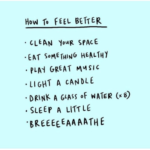 Some of the things you enjoy may be simple to incorporate into a regular daily/weekly routine.
Some of the things you enjoy may be simple to incorporate into a regular daily/weekly routine.
Think about how you can make time in your daily routine to use some of your wellness tools.
You might find it helpful to write a plan for your day or your week, giving times when you might for example go for a walk each day, do a home-work-out, sit in the garden with a cuppa or talk to a friend. Whatever it is that makes you feel well, make time for it in your day.
Once we become more aware of our wellness tools and we begin to consciously incorporate them regularly into our daily lives, we find that we are better able to maintain our well-being and use these wellness tools to nurture us and help lift our spirits when we are not feeling great.
Journaling
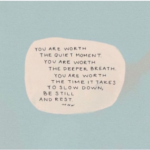 Some people find keeping a journal or a diary is another really useful wellness tool. Regularly writing down how we are feeling can help us focus on our wellness and help identify what might trigger low moods or patterns of challenging feelings. But, also to record positive feelings and achievements resulting from using our wellness tools.
Some people find keeping a journal or a diary is another really useful wellness tool. Regularly writing down how we are feeling can help us focus on our wellness and help identify what might trigger low moods or patterns of challenging feelings. But, also to record positive feelings and achievements resulting from using our wellness tools.
Maintaining Wellness During COVID-19 - TIPS
As well as having hope another key to staying well is taking care of yourself and taking positive actions for yourself. At this time, whilst we are social distancing and staying at home, we can all make changes to our daily lives to keep ourselves safe and feeling well.
Limit news/social media
If constant thoughts about the situation are making you feel anxious or overwhelmed, don’t stay glued to the news! Limit the time you spend watching, reading or listening to coverage of the outbreak on your tv or phone. Instead try and set a specific time to read updates or limit yourself to checking a couple of times a day. Use trustworthy sources to find out information you need, such as the
HSE - www.hse.ie/coronavirus or the Government of Ireland - www.gov.ie/coronavirus, which are both updated daily.
Take some control
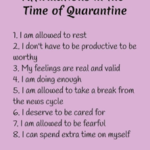 When we are struggling to stay well we often stop doing important tasks and this can make us feel worse, as we feel out of control. Try listing tasks and tackle some each day. Don’t try to do everything at once, break big tasks down into manageable chunks so they do not feel too overwhelming. Start with easier ones and as you progress, and feel more in control, your mood should improve. Be kind to yourself and remember to give yourself credit when you complete each bit.
When we are struggling to stay well we often stop doing important tasks and this can make us feel worse, as we feel out of control. Try listing tasks and tackle some each day. Don’t try to do everything at once, break big tasks down into manageable chunks so they do not feel too overwhelming. Start with easier ones and as you progress, and feel more in control, your mood should improve. Be kind to yourself and remember to give yourself credit when you complete each bit.
Plan practical things
Work out what practical needs you might have. For example, how can you get any household supplies you might need if you can’t go out? Try asking family, friends, neighbours for help or contact your Local Covid 19 Volunteer Group. Contact your GP or other service you might have been accessing to discuss how to continue receiving support or treatment. If you have to order prescriptions you can also ask your pharmacy or local Covid 19 Voluntary Community Group about getting your medicine delivered, or ask someone else to collect it for you.
Ask for help
 It's normal to feel a bit worried, scared or helpless about the current situation. It is OK to share your concerns with others you trust and doing so may help them too.
It's normal to feel a bit worried, scared or helpless about the current situation. It is OK to share your concerns with others you trust and doing so may help them too.
Think about who you would you feel comfortable talking to? Who would really listen to how you are feeling? Who would help you if you need support? They may be a trusted friend, a family member, a colleague or a healthcare provider, someone who you have found to be supportive and who will hear your concerns, someone who you can touch base with over the coming weeks.
Make time for worries
Rather than spending all day worrying, try and set aside a time in the day when you can make time to look at your concerns. Use this time to write down your worries and plan what steps you can take to change each one. This can help gets worrying thoughts out of your head onto paper, you will become more aware of your thoughts and may be able to see them from a different angle. Thinking about and planning solutions will give you a sense of control and focus.
Challenge unhelpful thoughts/ Stay on top of difficult feelings
Having worrying thoughts about the coronavirus outbreak is perfectly normal. The way we think affects the way we feel so try and be more aware of your thoughts. When you have an unhelpful thought it will help to ‘catch’ it and think about how you can change it to a more positive one. Controlling unhelpful, negative thoughts is one of the best things we can do to stay well. It's fine to acknowledge that some things are outside of your control, but try to focus on things you can control, such as how you act, who you speak to and where you get information from.
If constant thoughts about the situation are making you feel anxious or overwhelmed, try Relaxation or Mindfulness to help manage these intense feelings.
Stay connected
 Staying connected with others and maintaining healthy relationships with people you trust is important for your mental wellbeing. Sometimes when we feel anxious or worried we withdraw and stop talking to people. Think about how you can stay in touch with friends and family while you are all social distancing and staying at home and stay connected by phone, messaging, video calls, social media or drop someone a line. Lots of people are finding the current situation difficult, so staying in touch could help them too.
Staying connected with others and maintaining healthy relationships with people you trust is important for your mental wellbeing. Sometimes when we feel anxious or worried we withdraw and stop talking to people. Think about how you can stay in touch with friends and family while you are all social distancing and staying at home and stay connected by phone, messaging, video calls, social media or drop someone a line. Lots of people are finding the current situation difficult, so staying in touch could help them too.
Mental Health Ireland - Five Ways for Tough Times – Be Active
Do something you enjoy
It is important to make time for yourself in your daily routine, to relax and re-charge, especially as many of us are supporting or caring for others during this challenging time.
Often doing something we enjoy helps us feel calm and relaxed and helps us switch-off from anxious or worrying thoughts. This could be anything from doing something creative, spending time gardening, having a soak in the bath, listening to music, baking…. whatever is good for you. Many people also find relaxation, mindfulness or breathing exercises helpful as they reduce tension and focus our awareness on the present moment.
